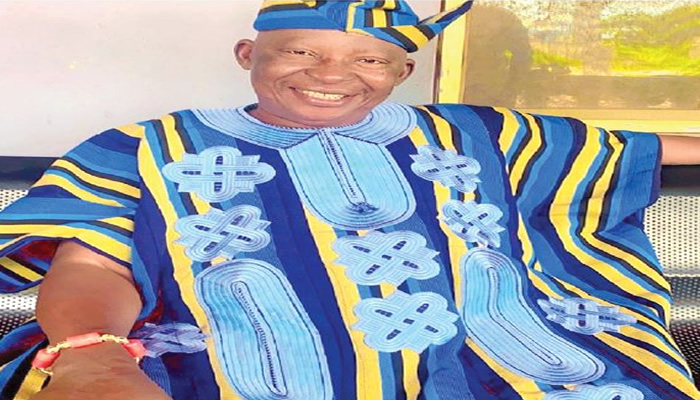A Comparative Analysis of Western and Nigerian Mother-in-Law Practices
The relationship between a mother-in-law and their child’s spouse can be complex, deeply influenced by cultural norms and societal expectations. In Western societies and Nigeria, the roles and interactions of mothers-in-law vary significantly, shaped by traditions, modern influences, and family structures. This article explores the differences and similarities between Western-style mother-in-law practices and Nigerian mother-in-law practices.
1. Family Structure and Influence
Western Mother-in-Law Practices
In many Western cultures (such as the United States, Canada, and most of Europe), family structures tend to be more nuclear. Adult children typically move out of their parents’ homes at a young age, fostering independence. As a result, Western mothers-in-law often play a less intrusive role in their children’s marriages.
- They are expected to respect boundaries and allow their children to manage their marital affairs independently.
- While some Western mothers-in-law may offer advice, they generally do not have significant control over their child’s marriage.
- There is often a cultural emphasis on individualism, meaning the new couple is encouraged to build their own life without excessive parental interference.
Nigerian Mother-in-Law Practices
Nigeria, like many African countries, has a strong extended family structure. Family involvement in marriages is considered normal and even necessary. Nigerian mothers-in-law often play a more active role in their children’s married lives due to cultural and traditional expectations.
- It is common for a Nigerian mother-in-law to offer guidance, especially to the wife, on how to take care of the home and family.
- Some Nigerian mothers-in-law see themselves as having a lifelong duty to ensure their son’s or daughter’s marriage is successful.
- In many Nigerian cultures, it is not unusual for newlyweds to live with or near their husband’s family, leading to more interactions with the mother-in-law.
2. Expectations from the Daughter-in-Law
Western Culture
In Western societies, a daughter-in-law (or son-in-law) is not necessarily expected to perform specific duties for the in-laws. While politeness and respect are encouraged, there is generally no societal obligation to serve or take care of a mother-in-law.
- The relationship is often based on mutual respect rather than hierarchy.
- The daughter-in-law is not expected to cook, clean, or care for her mother-in-law unless she chooses to do so.
- In many Western cultures, women are seen as equals to their husbands, and both partners share household duties.
Nigerian Culture
In Nigeria, the relationship between a daughter-in-law and her mother-in-law is often shaped by tradition, with expectations that the wife will show respect and serve her husband’s mother.
- In many Nigerian traditions, a wife is expected to cook for, greet, and take care of her mother-in-law when she visits.
- Kneeling or showing other forms of deep respect when greeting elders (especially in Yoruba culture) is common.
- Some Nigerian mothers-in-law expect their sons’ wives to regularly check on them, seek their advice, and involve them in family decisions.
3. Conflict and Mediation
Western Approach
When conflicts arise between a mother-in-law and their child’s spouse, the Western approach is usually to establish clear boundaries and communicate openly.
- Many Western couples prioritize their marriage over extended family opinions, which can sometimes cause tension if the mother-in-law feels excluded.
- Counseling or mediation is sometimes used to address family conflicts.
- If a mother-in-law is perceived as overstepping boundaries, it is common for the child to directly address the issue rather than expecting their spouse to handle it alone.
Nigerian Approach
In Nigeria, family conflicts are often handled more subtly, with diplomacy and respect playing key roles.
- Many daughters-in-law rely on their husbands to mediate issues between them and the mother-in-law.
- In extreme cases, elders or family members may be involved in resolving disputes.
- Due to the cultural emphasis on respect for elders, some Nigerian wives may tolerate certain behaviors from their mothers-in-law rather than openly confronting them.
4. Role in Parenting and Grandchildren
Western Style
- Many Western mothers-in-law maintain a loving but independent relationship with their grandchildren.
- They may help with babysitting, but it is not typically expected for them to take on a major caregiving role.
- The couple has full authority over parenting decisions, and the mother-in-law is expected to respect these boundaries.
Nigerian Style
- In Nigeria, grandmothers (especially the maternal and paternal grandmothers) often play an active role in raising their grandchildren.
- It is common for children to be sent to live with their grandparents for some time.
- A Nigerian mother-in-law may strongly influence how grandchildren are raised, including religious upbringing, discipline, and even choosing names for them.
5. Adaptation to Modern Changes
Western Adaptations
With changing family dynamics, many Western mothers-in-law are becoming more involved in their children’s lives but still prioritize respecting boundaries. Technology has also made it easier for them to stay connected without being physically intrusive.
Nigerian Adaptations
In urban areas and among younger generations in Nigeria, there is a growing shift toward a more Westernized approach. Many couples now establish boundaries with their in-laws while still maintaining cultural respect. However, in rural areas and traditional families, the extended family system remains strong.
Conclusion
The role of a mother-in-law varies significantly between Western and Nigerian cultures, influenced by traditions, family structure, and societal expectations. While Western mothers-in-law are generally more detached and respectful of boundaries, Nigerian mothers-in-law tend to be more involved in their children’s marriages. However, as globalization and modern influences continue to shape relationships, both cultures are slowly evolving toward a middle ground where respect, love, and understanding define the mother-in-law relationship.
Would you like me to tailor this to a specific audience or add more insights?





















